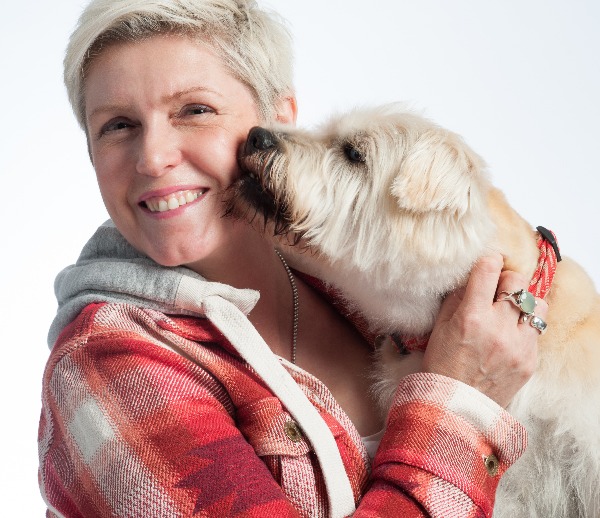Old dogs are now teaching us new tricks

Dogs are commonly referred to as man’s best friend. This is because of their undeniable physical and emotional connection to their owners. Now, new research suggests that this connection is actually closer than had previously been expected. It reveals that companion dogs can be a powerful translational model to study complex questions about human health and pave the way for a new undiscovered area of research, in which old dogs can now teach us new tricks about our health.
The research, conducted by a team at the Royal Veterinary College and the University of Washington has yielded ground-breaking new data to support the value of using clinical records from dogs to learn about human health.
Companion dogs and their owners live closely entwined lives, and the research showed that both suffer from age-related health issues such as obesity, arthritis and diabetes, with very similar occurrence patterns (for example, at what point in their lives that conditions develop). With the ever-growing life expectancy for humans, it is becoming more common for us to spend several years suffering from multiple chronic diseases in later life. But the long delay in humans from exposure to risk factors in youth such as geographical location, diet or exercise to eventual disease in older age means that research studies in humans can take decades to complete, and this limits our ability to develop ways to prevent and effectively treat these conditions.
However, because dogs naturally have a much shorter life span, and experience similar health issues, canine lifetime studies can be completed in roughly one-seventh of the time in dogs compared with humans. These studies can help researchers to understand complex diseases and provide valuable information that can be used to enhance the diagnosis, treatment and prevention of these health issues in both humans and dogs.
Dr. Dan O’Neill of the Royal Veterinary College said: “These findings are hugely exciting! By sharing clinical records on their pets with VetCompass™, UK owners and vets have already helped the UK to lead the world in population-based animal research. But now potentially millions of older humans may also see the benefits from the exploration of canine health records.”
The research was published in the human aging journal Aging Cell, and the research was conducted through the VetCompass™ project at the Royal Veterinary College which analyses anonymised veterinary clinical records from over 1000 UK vet clinics enhance understanding, and improve the health and welfare, of companion animals, and beyond.
Notes to Editors
For more information please contact:
Press Line: 0800 368 9520
About the Vet Compass™ Vet Compass™ is a research programme conducted by the Royal Veterinary College which shares and analyses veterinary clinical information to understand the disorders and improve the welfare of companion animals.
About the Royal Veterinary College
- The Royal Veterinary College (RVC) is the UK's largest and longest established independent veterinary school and is a constituent College of the University of London.
- The RVC offers undergraduate, postgraduate and CPD programmes in veterinary medicine, veterinary nursing and biological sciences, being ranked in the top 10 universities nationally for biosciences degrees.
- It is currently the only veterinary school in the world to hold full accreditation from AVMA, EAEVE, RCVS and AVBC. In 2017, the RVC received a Gold award from the Teaching Excellence Framework (TEF) – the highest rating a university can receive.
- A research-led institution, in the most recent Research Excellence Framework (REF2014) the RVC maintained its position as the top HEFCE funded veterinary focused research institution.
- The RVC ranked as the top vet school in the Agriculture, Veterinary and Food Science unit of the most recent Research Assessment Exercise, with 55% of academics producing world-class and internationally excellent research.
- The RVC also provides animal owners and the veterinary profession with access to expert veterinary care and advice through its teaching hospitals; the Beaumont Sainsbury Animal Hospital in central London, the Queen Mother Hospital for Animals (Europe's largest small animal referral centre), the Equine Referral Hospital, and the Farm Animal Clinical Centre located at the Hertfordshire campus.
You may also be interested in:
-
Final year BvetMed Student attends fully funded dairy welfare rotation in Canada
Last month, RVC Year 5 BvetMed student Yuri Burton seized a unique educational opportunity by …

